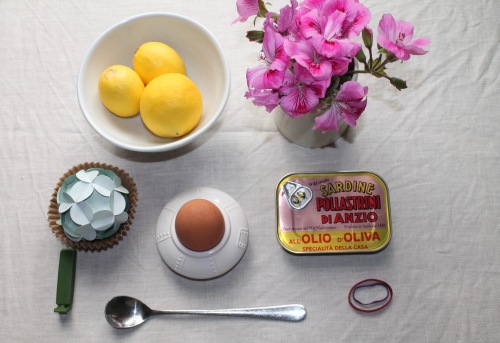domestic instinct: mine and others

‘A perfectly-kept house is a sign of a misspent life’. As a young woman I never questioned these words by English writer Rose Macauley. Domestic life was a tangle of repetitive and unfulfilling tasks that full-time work was designed to release women from; this much I was certain of. Like my friends I assumed that caring about housekeeping was to avoid the real challenges of life. I laughed at the idea that running a home might ever fill me with pride; that I might one day undertake household tasks with a lightness and grace that ennobled my time on this earth. I had no inkling how intimately my happiness might eventually be tied to my relationship to housekeeping.
On leaving home to see the world I felt confident that life lay before me, beyond the front door. My sense of self would be forged through my work and my personal relationships. My self-esteem rested on my ability to meet the demands of other people and the world. Only gradually did my home become, as it had been in childhood, the place that grounds and sustains me, helping me to make sense of my life outside it. It wasn’t the only place where I played out my inner longings, my private dreams, but it was an essential arena for them. Each morning when I went off to study, work or the park, home was where I started from.
This shift in my own life – from distancing myself from all things domestic as a girl, to identifying with it as a young woman – led me to want to improve the image of housekeeping. To change our common perception of domesticity as unworldly, demeaning, even mind-numbingly dull, to making looking after ourselves a quietly powerful act. To make creating order from chaos, moments of beauty from household mess, an intrinsically worthwhile thing to do. To present domesticity as a strength to be admired along with every other strength. Which isn’t to say that everyone should be domestic; clearly housekeeping doesn’t make you into a better, more rounded person. It’s more that those of us who do take pride in domesticity, might celebrate it more.
Whenever I answer the front door wearing an apron, nowadays, the person on the doorstep looks me up and down. A flicker of surprise crosses their face. Whether it’s the postman, the plumber or a friend, there’s the same moment of surprise. What’s normal for me, putting on an apron to mix dough, vacuum the stairs or tip stock into a colander, is less so for others. Wearing an apron to the front door is as mildly provocative as opening it in my dressing gown. At very least, it isn’t what the person on the doorstep expects me to be wearing.
When people ask what I do, I tell them I’m a writer. It’s true, I write every day and sometimes publish things. I feel lucky to have work I love, even if I can’t rely on it for income. However in social situations only rarely will I mention my job. This is because my job feels less acceptable, less noteworthy than my work; even though in some ways it’s harder and more challenging. My job has long hours, unregulated conditions and maddeningly low status. It’s not exactly a calling, though some days it feels like it. Until my kids leave home, my job is to keep things running smoothly without shouting and moaning too much. My job is housekeeping.
Countless people keep their homes running smoothly without shouting and moaning too much. They may not feel called to it nor, as I do, wear an apron to the front door. Nonetheless they spend a similar amount of time shopping and cleaning and cooking and listening and sorting and fixing and laughing – and generally making things happen at home. And then clearing it up afterwards. Like me they don’t consider this their main work; and certainly the world doesn’t. Knowing this isn’t what makes them interesting to others, they rarely bring it up in conversation. Mostly they just get on and do it. Nonetheless measured in hours, devotion, effort and skill it’s a big part of their life.
My aim in this project has been psychological more than practical. It has been to change my feelings towards domestic life such that I experience it positively, rather than busying myself with suppressing my negativity towards it. It has been to experience my home as a place of satisfaction, a door to creativity. Rather than writing off housekeeping against a fantasy of leisure, by reclaiming domestic life as important and meaningful, my aim has been to realise a therapeutic potential within daily reach.
My hope is that more of us will make friends with ourselves at home; so that instead of projecting unrealistic domestic demands on to a demanding, internalised other, we’ll reconcile ourselves to who we are and what we have at home. And that by experiencing home life in this gentler way, we may come to feel less complicated about our domestic instinct – or simply to recognise that we have one.
‘Know me, come to my home’ is an invitation for others to see us in a more rounded way. It conveys the familiarity that we feel on entering someone’s private space. It expresses what we care about beyond our physical presence. This kind of expression matters. Having the courage to fulfil our domestic ambitions, in even the smallest ways, is what gives us confidence to fulfil our worldly ambitions; only once we can live up to our own expectations can we take on those of others. Looking after ourselves at home, in ways that make our spirit sing, makes it more likely that we’ll take ours strengths, our song, elsewhere.

